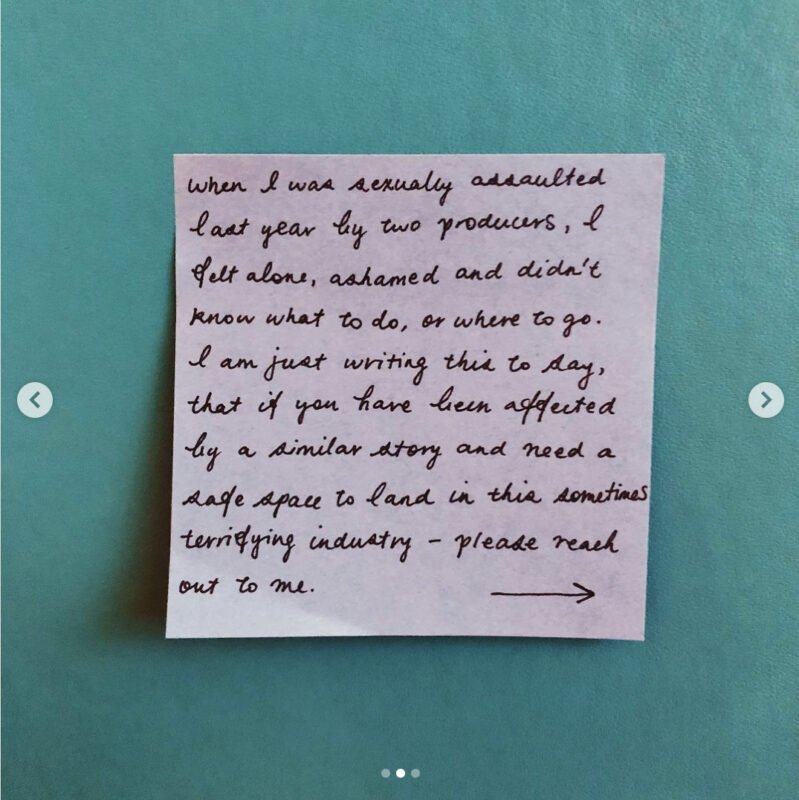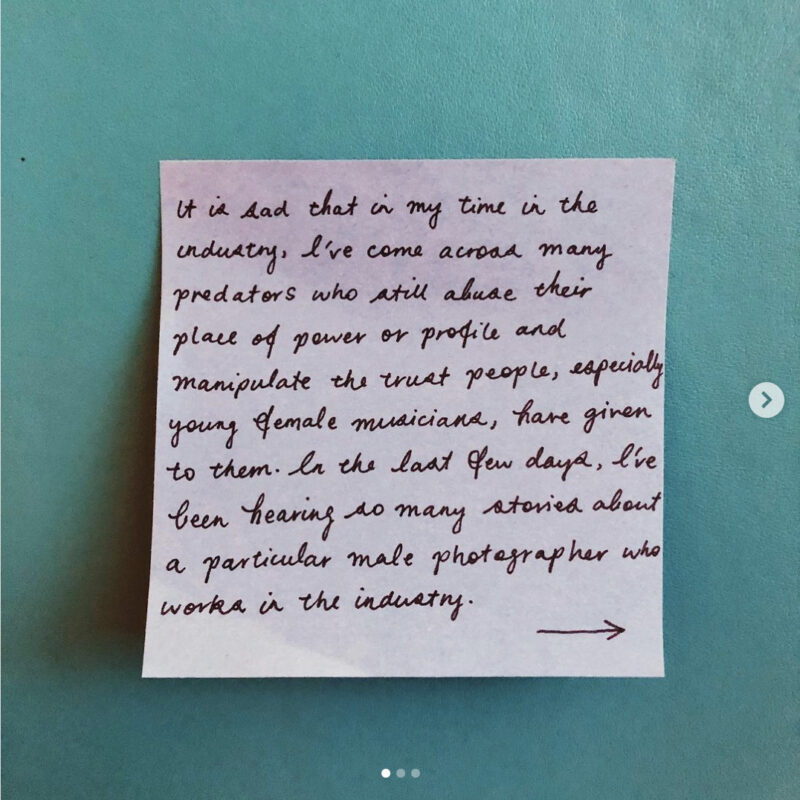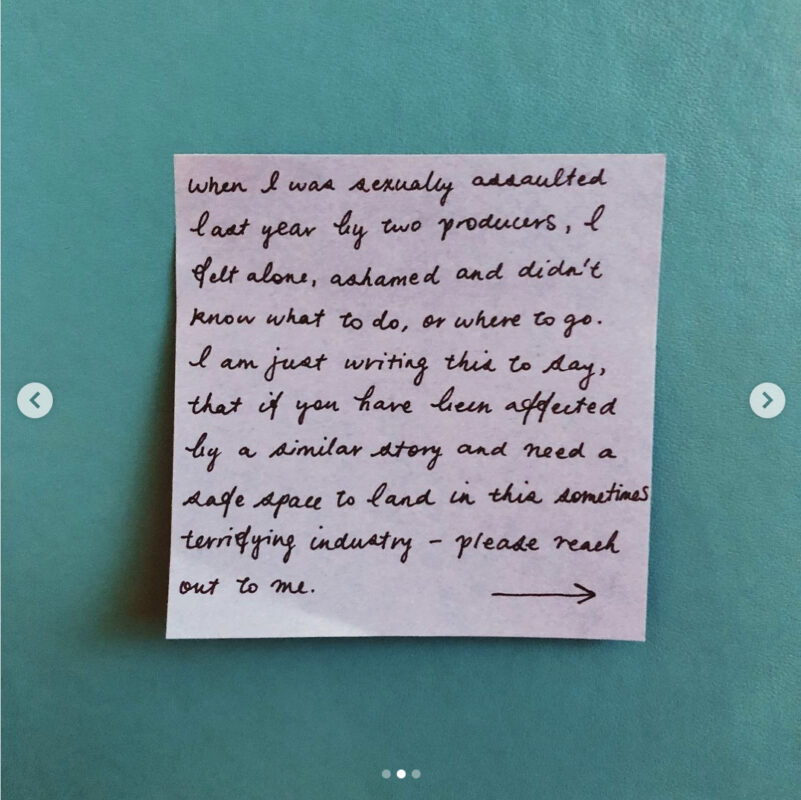Beneath the Glass Ceiling is an Instagram account, exposing the Australian music industry for its long history of sexual misconduct.
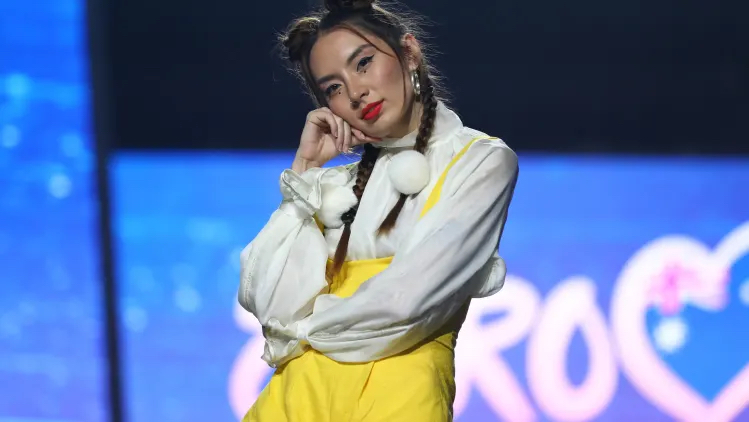
The entertainment industry is commonly accepted as overflowing with instances of both abusive and unethical behaviour.
Beneath The Glass Ceiling is an Instagram account operated by the organisation, confronting the issues of sexual harassment, abuse of power and systemic inequality. It awards a voice to the previously unrecognised, providing a support network for those on the receiving end of unfair treatment within the industry. Beneath The Glass Ceiling has over 90k followers. There is a surprising amount of traction considering that there are only 63 posts displayed posts. Contrary to its small-scale presence online, the ripple effect throughout The Australian music industry has been surprising.
Predators
The account is spearheaded by Jaguar Jonze, a Brisbane-based artist. In July of 2020, Jonze posted 3 pictures across her social media accounts. She had recently competed in Eurovision – Australia Decides in February of 2020.
The Instagram post contained post-it notes, upon which Jonze, the pseudonym of performer Deena Lynch, had written a statement in her tidy handwriting.
An excerpt from the posts reads,
“It is sad that in my time in the industry, I’ve come across many predators who still abuse their place of power or profile and manipulate the trust people, especially young female musicians, have given to them,” the first note read. “In the last few days, I’ve been hearing so many stories about a particular male photographer who works in the industry.”
Source: Junkee
Shortly after the posts appeared online, Lynch began to receive messages from women. They claimed to have had similar experiences with the male photographer mentioned, as well as other incidents of harassment and misconduct in the music industry. Lynch received stories from 20 women in less than 24 hours.
“I honestly didn’t realise the gravity of what I had unearthed.”
Source: Junkee
Lynch began the process of sharing these anonymous recounts across her social accounts, utilising the same post-it note aesthetic of her original post. The stories included allegations of harassment, indecent exposure, coercion, unsolicited nude photos sent in messages and more.
Pure Misogyny
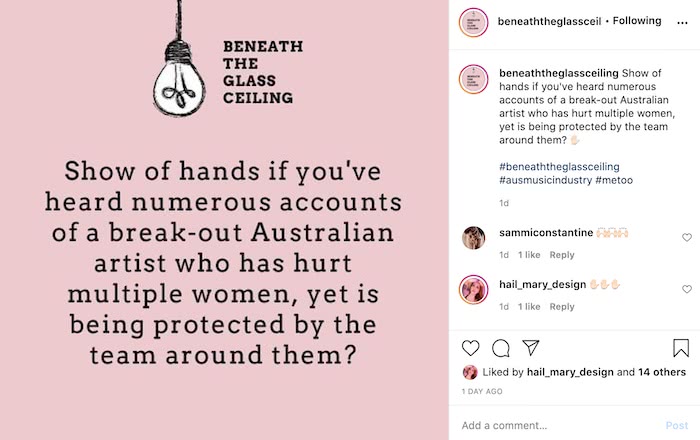
Shortly thereafter, the previously unnamed photographer at the centre of the controversy outed himself as Jack Stafford. Melbourne-based Stafford is known as a successful photographer, having worked with artists which include Kate Miller-Heidke, Odette and Ali Barter.
“A Melbourne music photographer who has worked with some of the country’s leading musicians has confessed he was an “abuser” who had “displayed pure misogyny” after he was the subject of a string of sexual misconduct allegations published on social media”
Stafford posted an apology via the blogging site Medium, which included admissions such as sending photographs of his penis to multiple women, making lewd comments to models he was working with and pressuring women into posing for nude or semi-nude photos. Stafford continues,
“I abused my power. And have displayed pure misogyny in more than just my professional career but also in my personal life.”
Source: SMH
#MeToo
Beneath the Glass Ceiling has encouraged a resurgence of the female-focused movement #MeToo. This is the second wave of allegations to hit the music industry since the movement first started. This was immediately following the downfall of criminally-convicted Harvey Weinstein, due to the sexual charges brought against him. This conviction came almost 3 years after the original allegations were published by The New York Times and The New Yorker. The pulitzer-prize winning articles were written by Megan Twohey and Ronan Farrow, cracking open one of the largest social movements in our modern history.
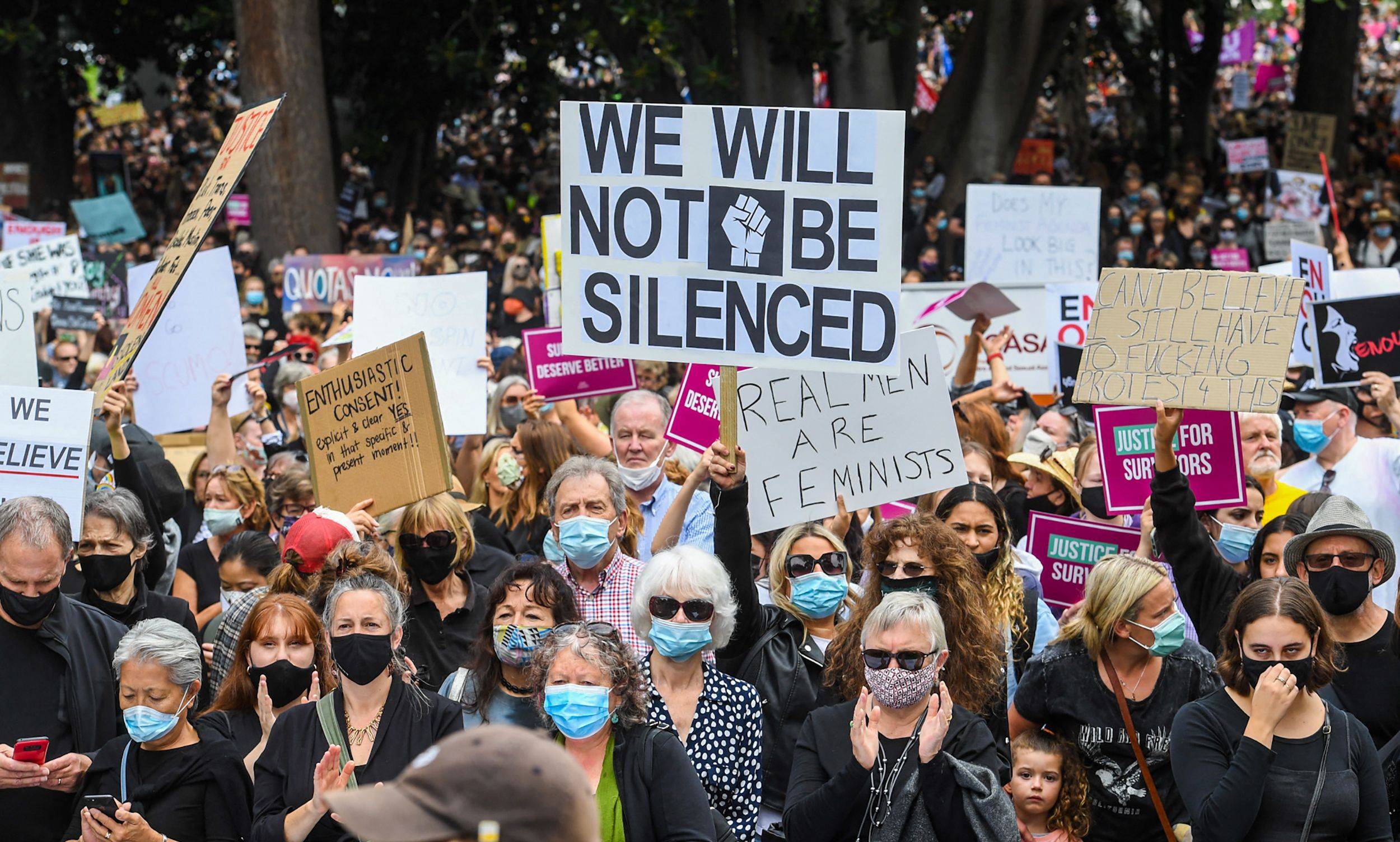
“The shockwaves reached far and wide: public figures like Kevin Spacey, Louis C.K., and Matt Lauer experienced spectacular falls from grace after serious allegations were made against them (although, as in the case of Louis C.K., some have since returned to the public sphere).”
Source: Junkee
Defamation in Australia
Australian television presenter Don Burke was publicly disgraced after a number of allegations surfaced regarding sexual harassment in November of 2017. He later successfully sued one of his accusers for defamation. Geoffrey Rush was also accused of acting inappropriately towards actor Eryn Jean Norvill during a production of King Lear in 2015. Rush subsequently sued The Daily Telegraph, who published a series of articles about the aformentioned incident.
“Australia is known for being a plaintiff-friendly jurisdiction,” Hannah Marshall, from Sydney’s Marque Lawyers, told Music Junkee. “There are bigger hurdles in places like the UK and the USA which reduce the number of defamation actions there.”
Source: Junkee
Politically speaking, Brittany Higgins’ decision in February 2021 to come forward with her personal account of sexual assault in the work place has challenged the public’s perception and confidence in the Coalition’s practices.
Beneath the Glass Ceiling has been releasing user’s stories of sexual abuse, sexism, bullying and the gross abuse of power in the workplace since November 2020. These incidents allude to offenders which include top male executives within the music industry.
“The cracks are beginning to show, and while the allegations are horrific to read, such a culture of disrespect for women has been an ‘open secret’ in the industry for decades.”
Source: Beat
Subscribe to FIB’s Weekly Alchemy Report for your weekly dose of music, fashion and pop culture news!

